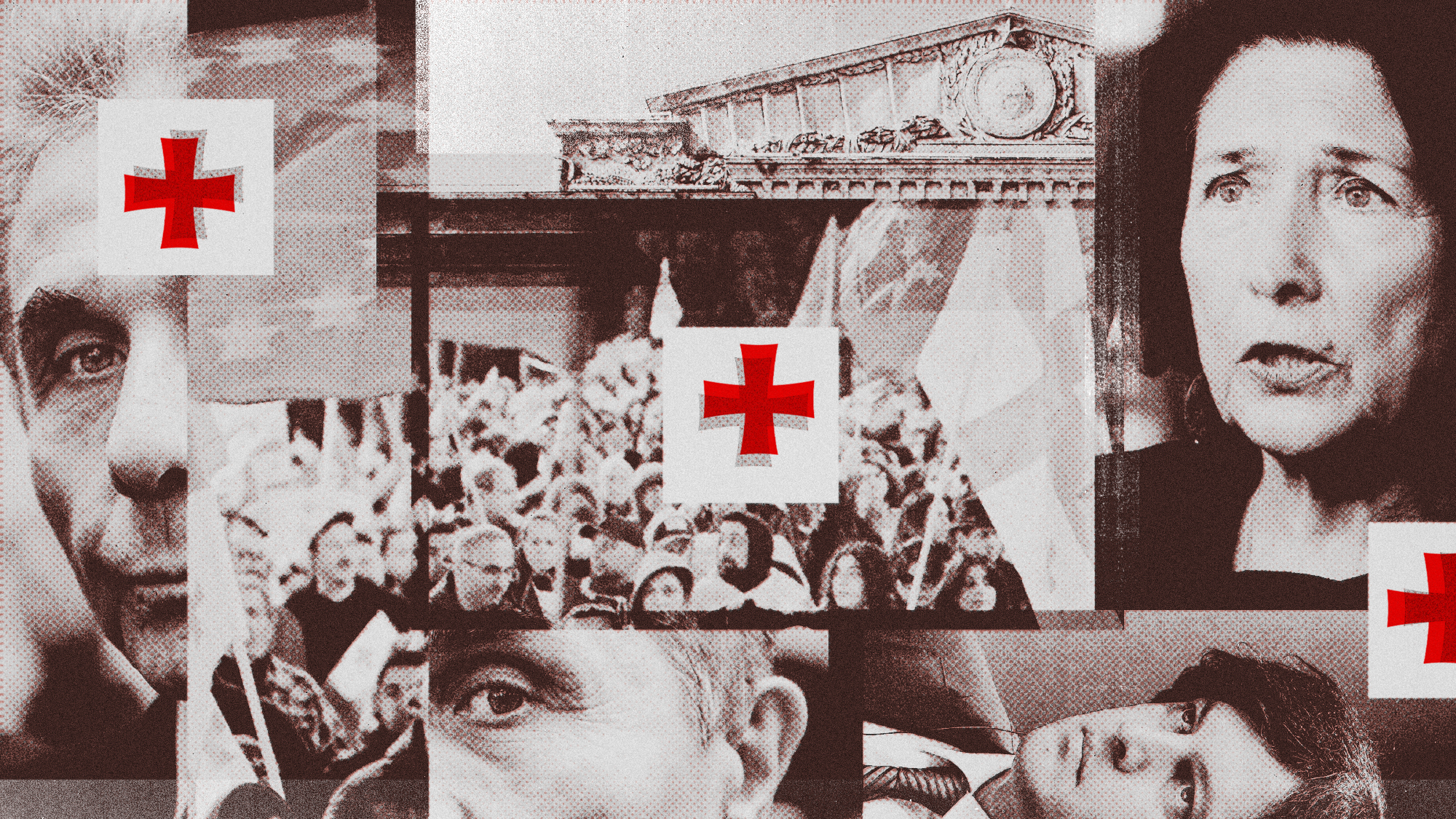Was Georgia's election stolen?
The incumbent Georgian Dream party seized a majority in the disputed poll, defying predictions

A free daily email with the biggest news stories of the day – and the best features from TheWeek.com
You are now subscribed
Your newsletter sign-up was successful
Opposition parties are accusing Georgia's ruling populists of rigging the general election after they won an unprecedented fourth term in office.
The incumbent Georgian Dream party's 54% share of the vote on Saturday came as a surprise to the pro-Western opposition coalition, not least because exit polls showed a "dramatically different result" that put Georgian Dream at around 40%, said Euronews.
Georgia's Prime Minister Irakli Kobakhidze "hailed" the result and claimed that "irregularities happen everywhere" in national elections, said the BBC, despite accusations of intimidation and voter fraud.
The Week
Escape your echo chamber. Get the facts behind the news, plus analysis from multiple perspectives.

Sign up for The Week's Free Newsletters
From our morning news briefing to a weekly Good News Newsletter, get the best of The Week delivered directly to your inbox.
From our morning news briefing to a weekly Good News Newsletter, get the best of The Week delivered directly to your inbox.
The opposition parties, backed by pro-Western President Salome Zurabishvili, have refused to recognise the result and called for street protests, alleging Russian interference. The United States and EU have both called for an independent investigation into claims of "irregularities" in the election.
What did the commentators say?
The election result, and the subsequent unrest, "reflects a perilous schism in Georgian society" that has been growing for some time, said Robin Ashenden in The Spectator. The government has seemingly been "seeking ever closer ties" with its neighbour to the north, Russia. Previously a pro-Western party, Georgian Dream's policies since taking office in 2012 have been a "slavish aping of the very worst aspects of [Vladimir] Putin’s rule", even as they pay lip service to pro-EU rhetoric to satisfy a population, particularly those of younger generations, who are "ragingly keen for" membership of the European bloc.
Georgia was on the brink of EU membership before a Kremlinesque "foreign agent" bill (which requires media and NGOs receiving more than 20% of funding from abroad to be declared as "agents of foreign influence") was passed in May. The law was "widely criticised by EU leaders", and Georgia's bid for membership paused indefinitely, said Euronews.
The party has said it is still "committed to Georgia's EU membership". But many fear it is simply a smokescreen for "greater state control over civil society" and the "inexorable return to Moscow’s orbit" that the government is "careful not to discuss", said France24.
A free daily email with the biggest news stories of the day – and the best features from TheWeek.com
The Kremlin wants to "reassert its stamp on former Soviet territories", said Politico. The furore over its ties to Georgia's ruling party and alleged election interference suggest it is willing to "pour big money into vote-buying and disinformation campaigns". Despite the EU's confidence that its "liberal, democratic agenda" would "ultimately steer" these nations away from Russia, the "determination" of Moscow to assert its influence is "daunting" for the bloc.
It is highly suspected that Russia made "widespread efforts to undermine" the EU membership vote in Moldova this month. Despite polls demonstrating popular support for the EU, a vote in favour of membership won by the "narrowest of margins", something the EU claims was down to "Russian dirty tricks".
What next?
Within Georgia, the promise of opposition parties to contest the vote could lead to "legal wrangling and street protests" for some time, said Radio Free Europe. It remains "unclear", said Euronews, how "Georgia's EU ambitions will progress" if the election results stand.
Beyond Georgia's borders, the contested results are already having an impact. The issue has already been "added to the agenda" for the EU's summit in Budapest next week, said The Guardian.
Hungary's Prime Minister Viktor Orbán has congratulated Georgian Dream's "overwhelming victory" and announced plans for a visit, a move "likely to anger fellow EU leaders".
Richard Windsor is a freelance writer for The Week Digital. He began his journalism career writing about politics and sport while studying at the University of Southampton. He then worked across various football publications before specialising in cycling for almost nine years, covering major races including the Tour de France and interviewing some of the sport’s top riders. He led Cycling Weekly’s digital platforms as editor for seven of those years, helping to transform the publication into the UK’s largest cycling website. He now works as a freelance writer, editor and consultant.